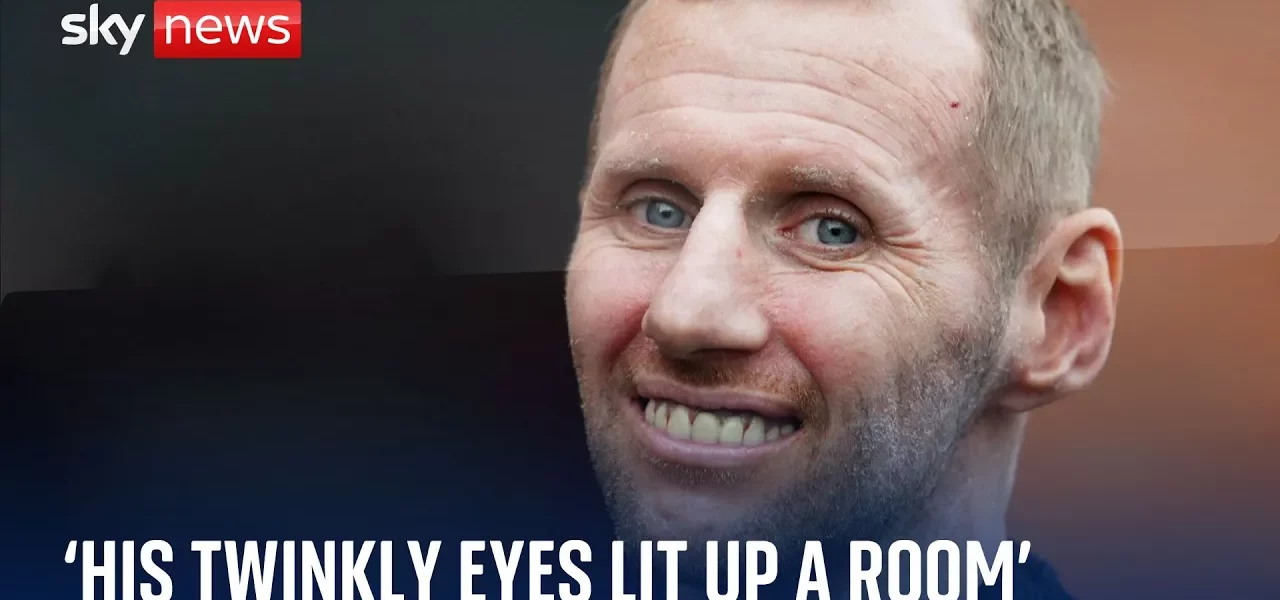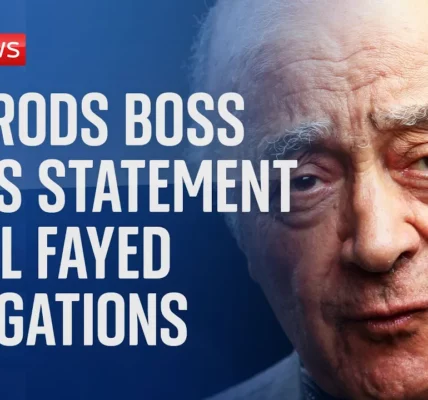The Legacy of Rob Burrow: Raising Awareness for Motor Neuron Disease

In this article, we explore the remarkable contributions of Rob Burrow in raising awareness for Motor Neuron Disease (MND), featuring insights from Tanya Curry, the Chief Executive of the Motor Neuron Disease Association. The impact of his journey and the ongoing efforts to support those affected by this debilitating condition are discussed in detail.
Introduction
Rob Burrow’s life and legacy have become a beacon of hope and awareness in the fight against Motor Neuron Disease (MND). Since his diagnosis, Burrow has tirelessly worked to elevate the understanding of this condition, not only through his personal journey but also by rallying support from the rugby community and beyond. Tanya Curry, the Chief Executive of the Motor Neuron Disease Association, shares her insights on the profound impact Burrow has had and the community’s response to his untimely passing.
The Outpouring of Grief and Tribute
Since the announcement of Rob Burrow’s death, there has been an overwhelming response from the public, showcasing the sincerity of grief and the respect for his contributions to MND awareness.
The Community’s Response
The MND community, alongside Burrow’s family and teammates, has come together to honor his memory. Tanya Curry notes the significant tributes that have emerged, reflecting on Burrow’s determination and the indelible mark he left on those around him.
- Tributes from fans and players alike
- Media coverage highlighting his achievements
- Increased discussions about MND in public forums
Rob Burrow’s Spirit and Determination
Burrow’s resilience was a cornerstone of his character, inspiring many who faced similar challenges. Tanya describes him as someone who possessed a vibrant spirit and a warm personality that could light up any room.
Personal Qualities
His ability to remain practical and down-to-earth helped him connect with others, making him a relatable figure in the MND community.
- Tenacity in facing his diagnosis
- Commitment to raising awareness
- Support for fellow MND patients and their families
The Impact of MND on Families
The diagnosis of MND is not just a personal battle; it profoundly affects the entire family unit. Tanya Curry emphasizes the emotional and physical toll it takes on both the patient and their loved ones.
Challenges Faced by Families
Family members often witness their loved ones deteriorating, which can lead to a sense of helplessness and despair.
- Changes in daily routines and responsibilities
- Emotional strain from watching a loved one suffer
- The need for increased support and care
Understanding Motor Neuron Disease
MND is a neurodegenerative disease that progressively affects the motor neurons, leading to a decline in muscle function and ultimately impacting various physical capabilities.
Symptoms and Effects
Patients may experience a range of symptoms, including:
- Muscle weakness and wasting
- Difficulty in speaking and swallowing
- Breathing difficulties in advanced stages
Research and Causes
There is ongoing research into the causes of MND, focusing on:
- Environmental factors
- Genetic predispositions
- Lifestyle influences
The Importance of Specialized Care Centers
The establishment of purpose-built care centers for MND patients is crucial for providing adequate support and treatment. Tanya highlights the significance of the Rob Burrow MND Center, which aims to deliver comprehensive care.
Features of the Rob Burrow MND Center
This center is designed to offer:
- Access to multidisciplinary teams
- Facilities tailored to the needs of MND patients
- Support services for families
Rob Burrow’s Fundraising Legacy
Rob Burrow’s fundraising efforts have raised millions for MND research and support initiatives. Tanya notes that the financial contributions are significant, but the awareness raised is even more impactful.
Fundraising Achievements
As of the latest reports, Burrow’s efforts have resulted in:
- Over £15 million raised through various initiatives
- Increased visibility for MND in public discussions
- Greater community involvement in fundraising activities
Conclusion
Rob Burrow’s legacy will continue to inspire efforts to raise awareness and support for those affected by Motor Neuron Disease. His determination and the community’s response serve as a powerful reminder of the impact one individual can have on the lives of many. We encourage everyone to engage with MND associations and contribute to the ongoing fight against this disease.
For more information on MND and how you can help, please visit the Motor Neuron Disease Association’s official website.
“`




